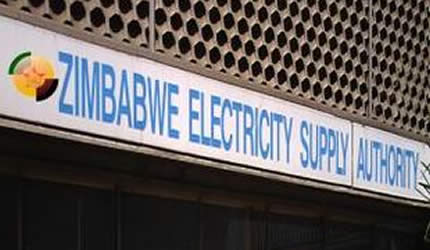Zesa workers battle to recover outstanding salaries

Fidelis Munyoro Chief Court Reporter
More than 450 workers at Zesa Holdings are battling to recover over $5 million in outstanding salaries and benefits stemming from a gazetted collective bargaining agreement three years ago which management has up to date defied. The dispute has now been referred to compulsory arbitration to quantify the amount owed to the workers plus interest thereon. According to the gazetted 2012 collective bargaining agreement, Zesa was supposed to effect a minimum increment of $275 and 12 percent grade differentials, 2,5 percent step (notch) differentials, non-pensionable allowance (30 percent of basic salary), $70 transport allowance and $23 canteen allowance (grade 1 to D2) with effect from January 2012.
Zesa challenged the statutory instrument in the High Court which referred the dispute to two independent arbitrators – hence the matter ended up before retired judge Justice Ahmed Ebrahim and Professor Emmanuel Magade – who ruled in favour of the workers.
The power utility ignored the arbitral award insisting that the amount was too high arguing this would strain its financial capacity.
Since January 2012 Zesa began to accrue salary arrears and benefits as a result of salary scales brought into effect by the S/I 50 of 2012.
Now the claim has been referred for quantification before an arbitrator identified only as Mr Dangwa. Through their lawyer, Mr Albert Chambati of Chambati, Mataka and Makonese, the workers are arguing that the employer was obliged to comply with statutory instrument 50 of 2012 as it was now law (subsidiary legislation).
Zesa had more than 7000 workers countrywide.
In February this year Zesa communicated to the workers on the financial implications of the award on the group.
The company told the workers that the total back pay then amounted to $118 million while the incremental payroll cost for this year was $68 million, which is approximately $5,7 million per month. “Implementing the arbitral award will worsen the company’s financial performance,” said the chief executive Mr Josh Chifamba.
“The net liability position which stood at $496 million in 2012 will worsen to $922 million in 2015.
“The financing gap for the year 2015 will amount to $182 million.”
He said the company did not have the financial capacity to implement the award.
Early this year the power utility conceded bungling by from the arbitral award and proposed to raise electricity tariffs by six percent to cater for salary arrears arising from the gazetted 2012 collective bargaining agreement.
It then offered the workers $21 million spread over four months, arguing that their demands were “unrealistic”. Instead of paying the collective bargaining award when it was still affordable, the Zesa management for the past three years unsuccessfully contested the result in courts.
Now, the figure has ballooned and has to be backdated.
The dispute is also likely to cost Zesa another more than $5 million in tax liabilities, according to calculations by the Ministry of Energy and Power Development. According to the Ministry of Energy and Power Development, the least worker is owed $1 628, while the highest paid (skilled) worker should get about $2 418.
But workers, through the Zimbabwe Energy Workers Union, claim the liabilities to be $5 607 and $37 102, respectively.








Comments